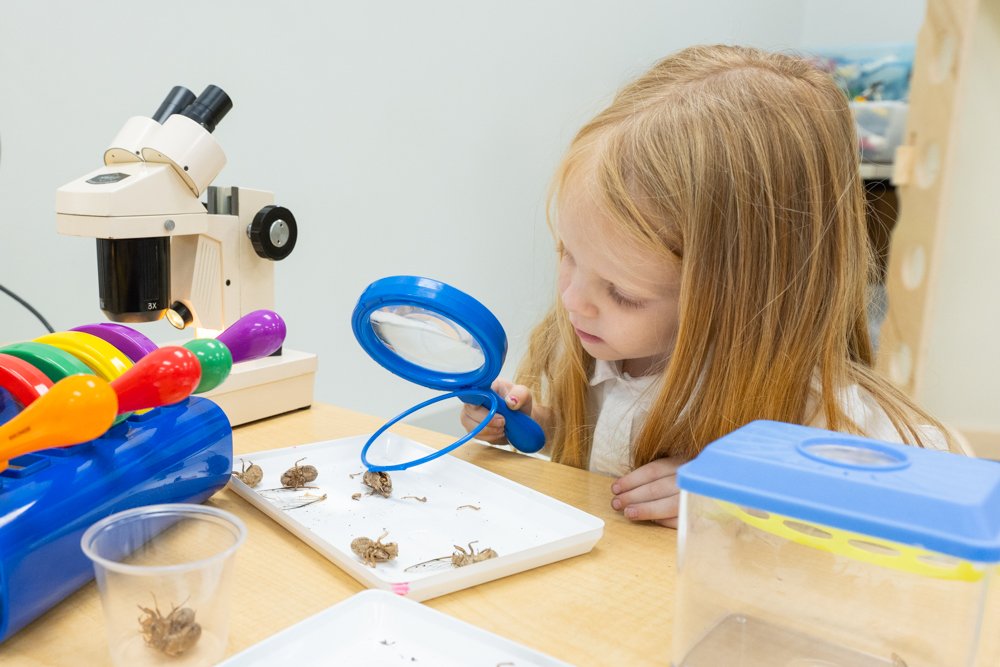- Admission
- Discover Episcopal
- Our Program
- Athletics
- Arts
- Spirituality
- Student Life
- Support Episcopal
- Alumni
- Parent Support
- Knightly News
- Contact Us
- Calendar
- School Store
- Lunch Menu
- Summer Camps
- Knight Under the Stars
- Chicago Tickets
- PowerSchool Notice
« Back
Fostering a Lifelong Love of Science in Early Childhood
November 30th, 2023
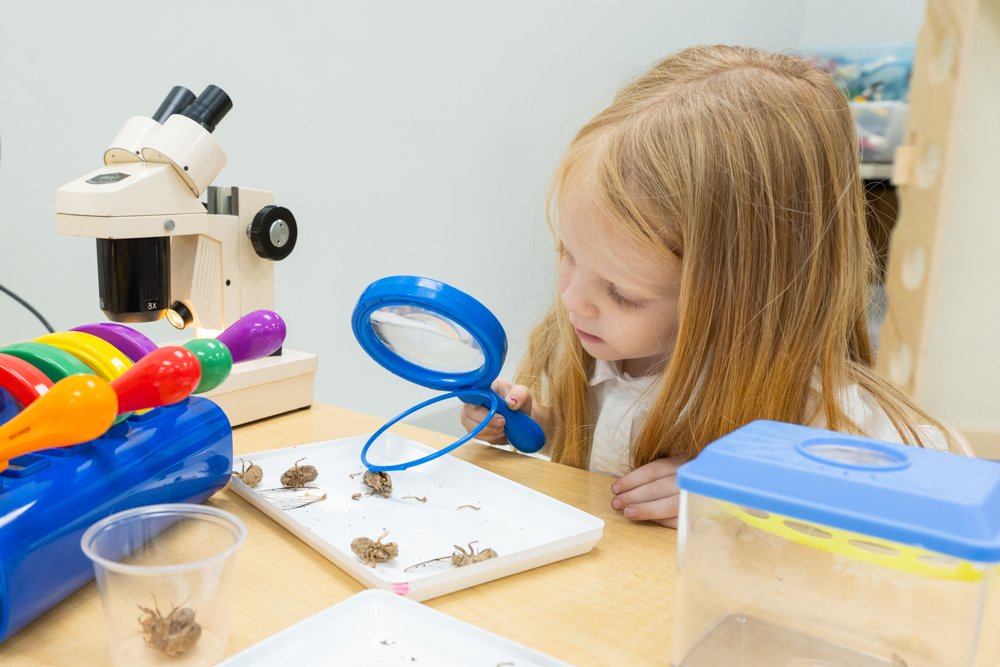
Any parent of young children is familiar with the daily onslaught of “the 5 W’s”why, what, who, when, and where? Researchers, led by child psychologist Dr. Sam Wass, surveyed 1,500 parents and concluded that children ask an average of 73 questions each day – almost four questions every waking hour. The analysis also revealed children’s inquisitive nature peaks at the age of four years old for both boys and girls. Additional studies show that most children have formed an opinion (either positive or negative) about science by the time they reach the age of seven. Early childhood educators have a tremendous impact and influence on a child’s potential to seek out a career in science or engineering later in life. It is imperative for teachers to harness children’s innate sense of curiosity in their early years of formal education in order to foster a lifelong love of science. Parents of early childhood learners at Episcopal should be assured that through project-based learning and child exploration, science is present throughout the day.
Starting in Episcopal’s early childhood program, students are provided rich and meaningful opportunities. These opportunities encourage discovery through play including manipulating, exploring, making predictions, asking questions, and using creativity to solve simple problems. Each year, students build on prior knowledge to expand their learning. For example, our youngest PreK-3 Knights explore their five senses by cooking a Thanksgiving feast. PreK-4 investigates the sense of sight by mixing colors to explore prisms and rainbows while learning about colors and light. Kindergarten students spend several weeks learning about their own five senses in comparison to how insects and other animals use their senses. Many of their questions are answered through explorations and investigations including taste testing, smelling potions, nature walks, observations and predictions.
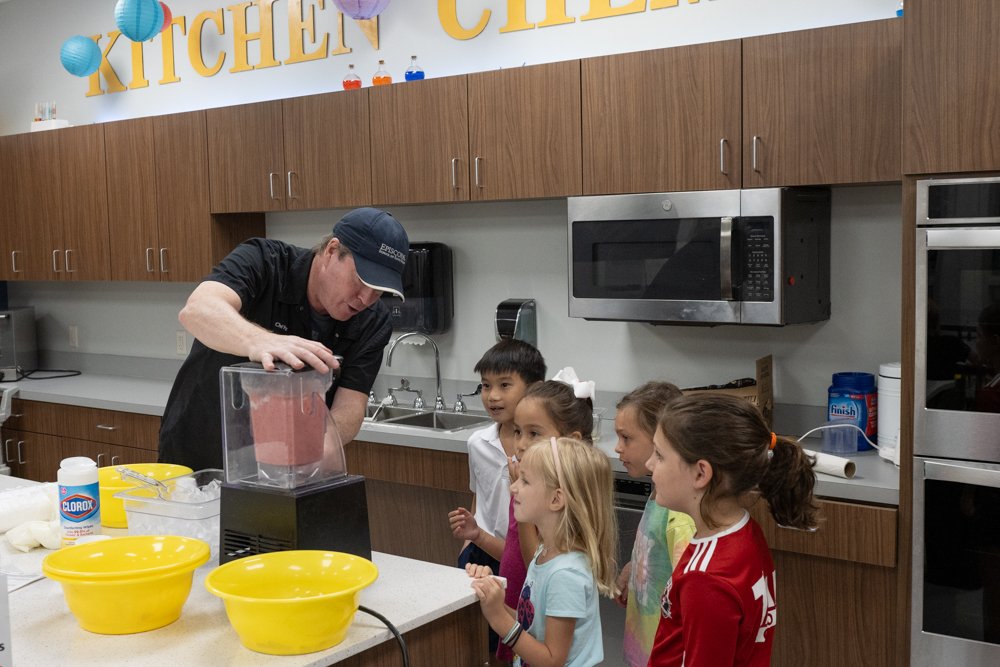
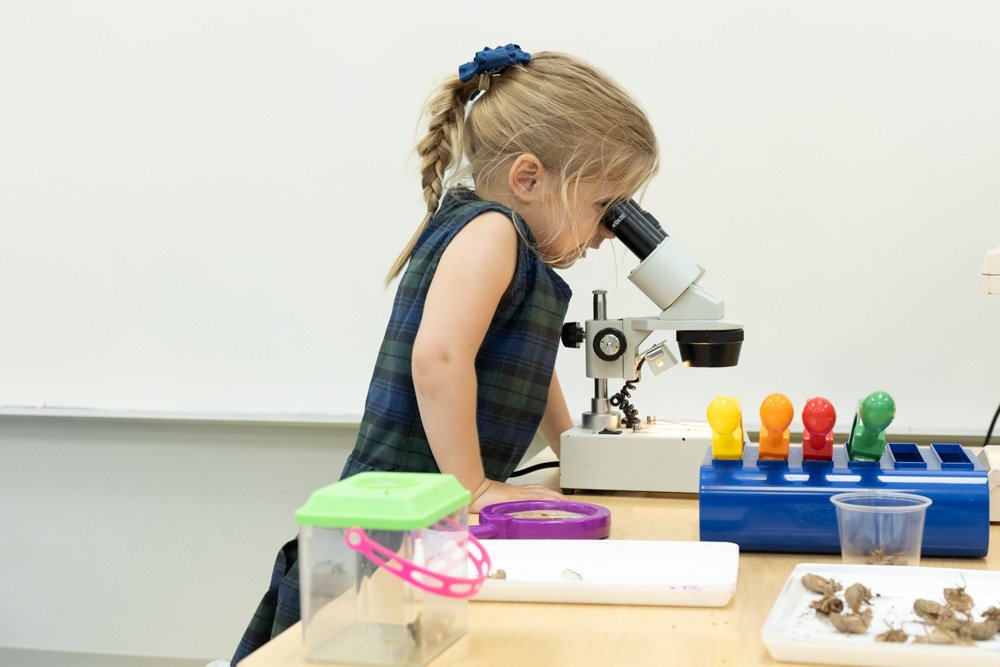
Coding provides another avenue for Episcopal’s young learners to train their brains for the future. In the early childhood classrooms, students begin to use Beebot and Indi robots. The children program simple commands to navigate the robot to its desired location. In previous years, Beebot has navigated neighborhoods during PreK’s study of communities and helped kindergarten learn about the number line in math. Indi robots allow students to code using colors to carry out various paths.
In addition to these formal science experiences, students are given ample free time to explore and process what they have learned. Whether it is sticking their hands into a slimy pumpkin at Halloween, balancing blocks to build a tall tower through trial and error, or pulling a molted exoskeleton of a cicada from a tree or discovering a butterfly chrysalis in the garden, these organic and natural experiences provide the foundation for children to become critical thinkers and problem solvers.
Julie Mendes '01
Julie is an Episcopal graduate, former Early Childhood Director and current Director of Education & Programming for the Children's Museum of St. Tammany.
The Episcopal School of Baton Rouge 2025-2026 application is now available! For more information on the application process, to schedule a tour, or learn more about the private school, contact us at [email protected] or 225-755-2685.
Posted in the categories All, Lower School.
Other articles to consider
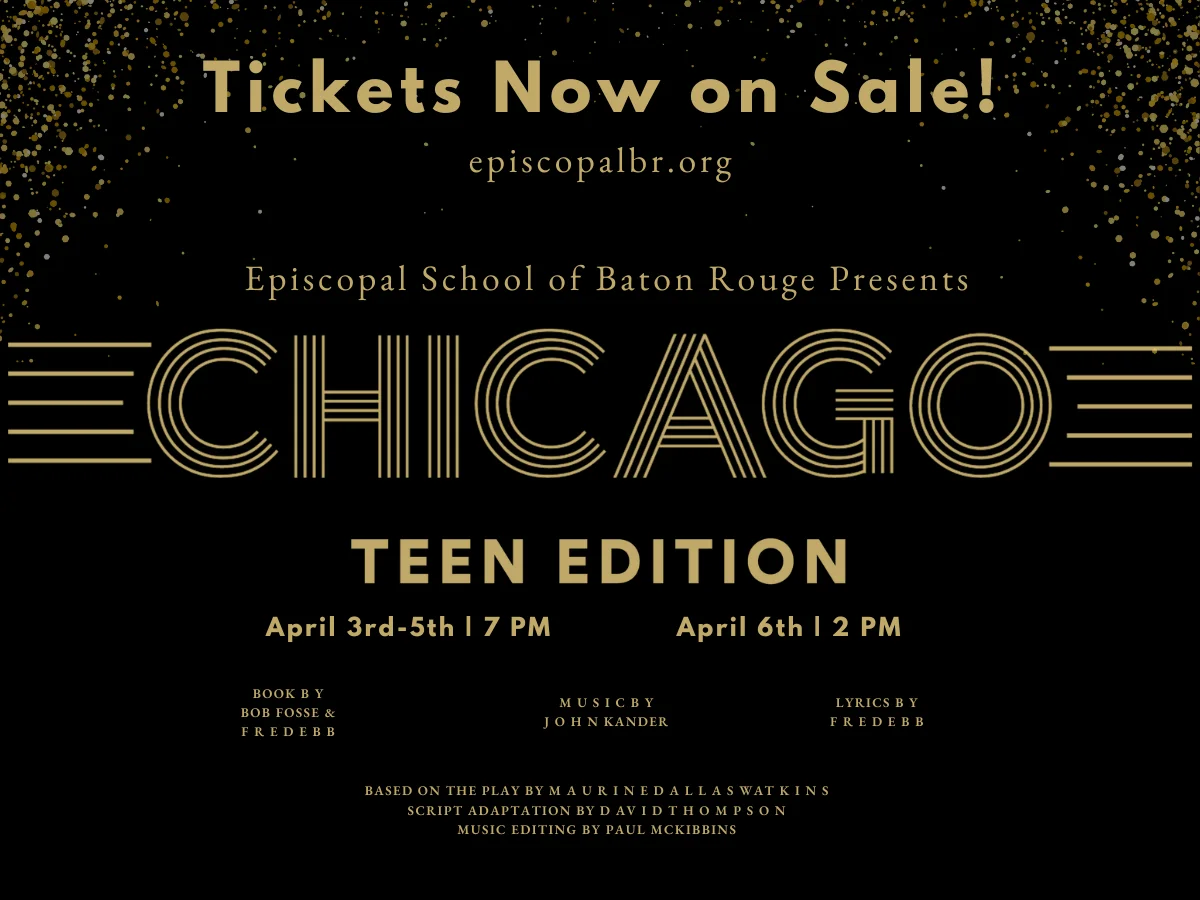 Mar27Episcopal Presents "Chicago: Teen Edition"
Mar27Episcopal Presents "Chicago: Teen Edition"Don’t miss the Upper School spring musical “Chicago: Teen Edition”! With dancing, singing, a true crime theme and a 12-piece professional orchestra, this PG-13 presentation is sure to impress. Shows run April 3-6—get your tickets today!
See Details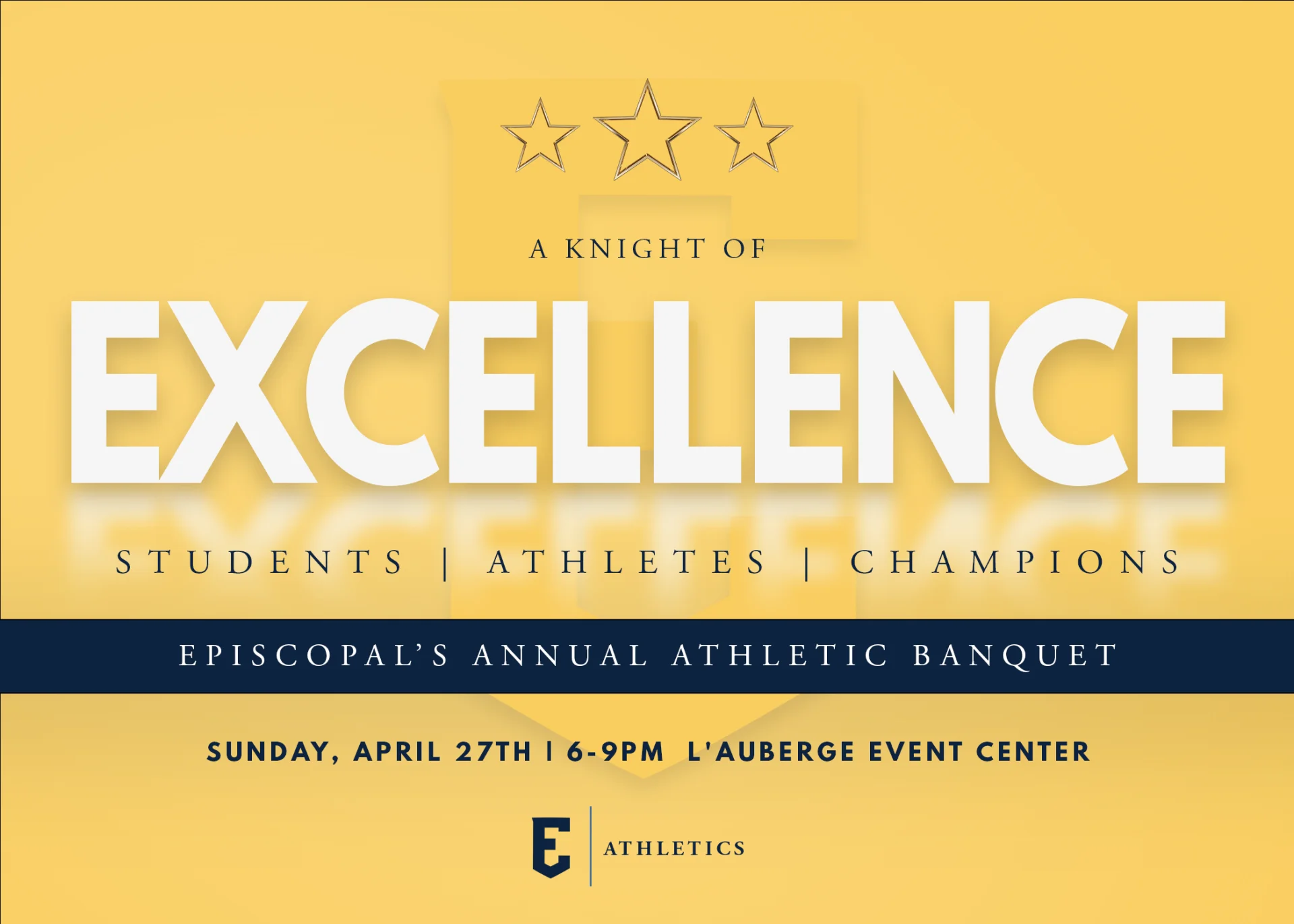 Mar27Episcopal Announces "The Knight of Excellence" Athletic Banquet
Mar27Episcopal Announces "The Knight of Excellence" Athletic BanquetCelebrate Episcopal's top athletes at the Knight of Excellence on April 27th! Join us for an inspiring evening of awards, recognition and community.
See Details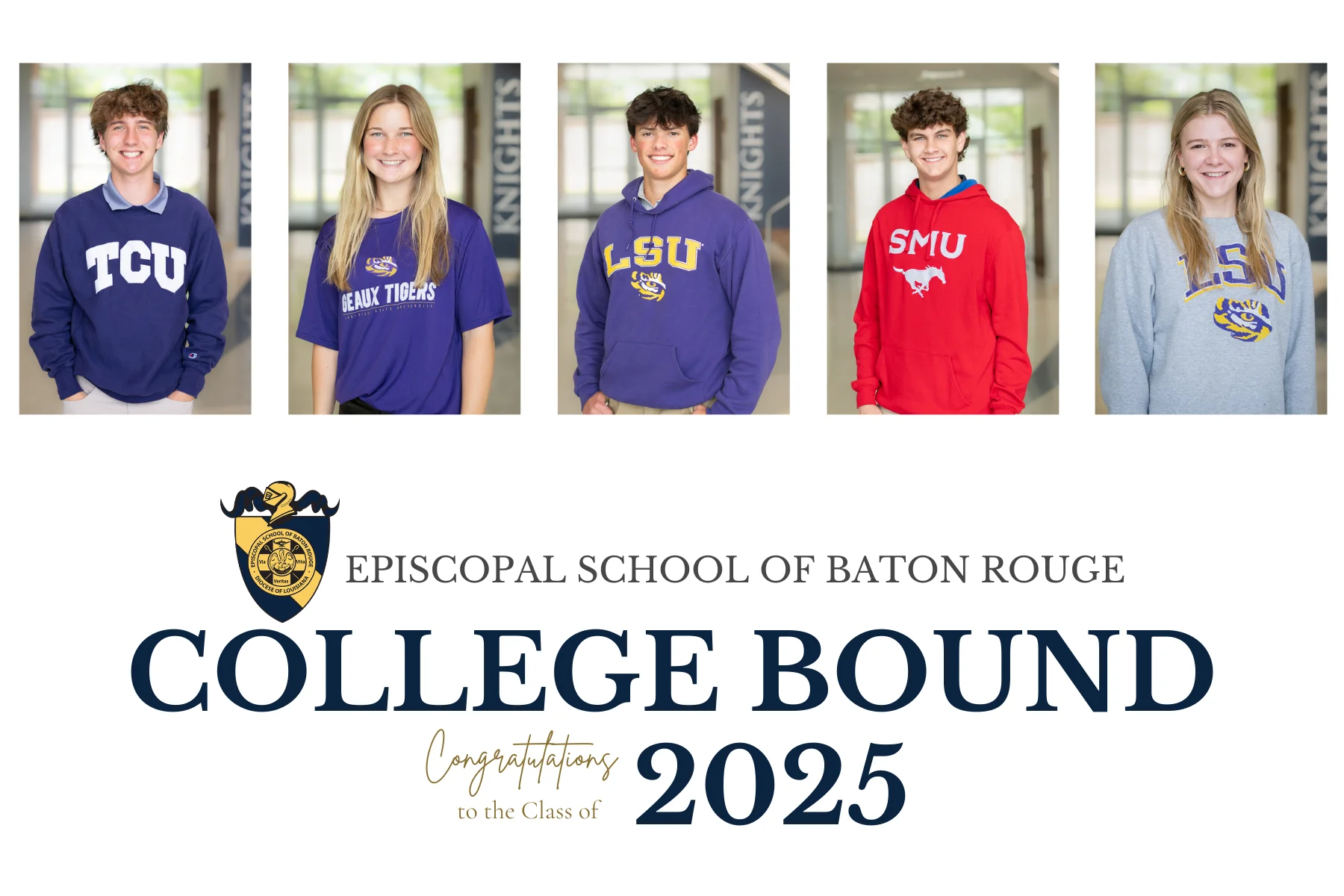 Mar26College Announcements 3.28.25
Mar26College Announcements 3.28.25Please join us in congratulating members of the Class of 2025 as they announce their college enrollment decisions.
See Details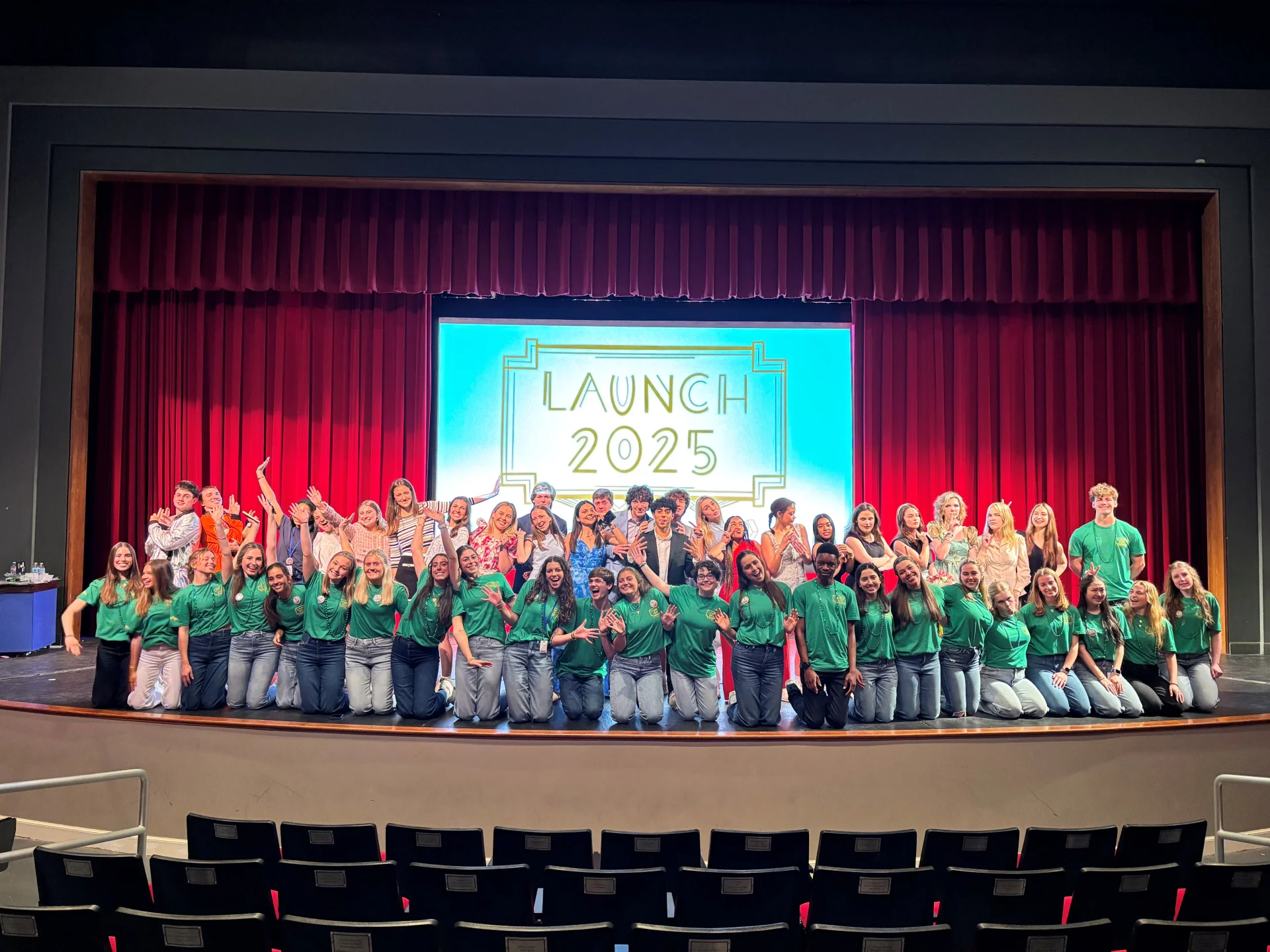 Mar25A Community of Learners Takes the Stage at LAUNCH Day 2025
Mar25A Community of Learners Takes the Stage at LAUNCH Day 2025LAUNCH Day 2025 celebrated student-driven research, innovation and a close-knit community of learners. See how seniors showcased their hard work, creativity and big ideas on stage.
See Details
Categories
- All
- Admission
- Athletics
- College Bound 2019
- College Bound 2020
- College Bound 2021
- College Bound 2022
- College Bound 2023
- College Bound 2024
- College Bound 2025
- Counselors Corner
- Episcopal Alumni
- Giving
- Head Of School
- Lower School
- Middle School
- Spirituality And Service
- Student Work
- The Teachers' Lounge
- Upper School
- Visual And Performing Arts
Recent Articles
- 03/27/25Episcopal Presents "Chicago: Teen Edition"
- 03/27/25Episcopal Announces "The Knight of Excellence" Athletic Banquet
- 03/26/25College Announcements 3.28.25
- 03/25/25A Community of Learners Takes the Stage at LAUNCH Day 2025
- 03/24/25Congratulations to the 2025 Newton Distinguished Faculty Award Honorees!
- 03/21/25College Announcements 3.21.25
- 03/21/25Chase Cresson to Play Football at Morehead State University
- 03/20/25Anna Kate Yale to Compete at Harding University
- 03/13/25From Museums to READBowl: Episcopal Students Embrace the Joy of Learning
- 03/13/25Expanding Academic Support: ARC Fellows Mentor Lower School Students


